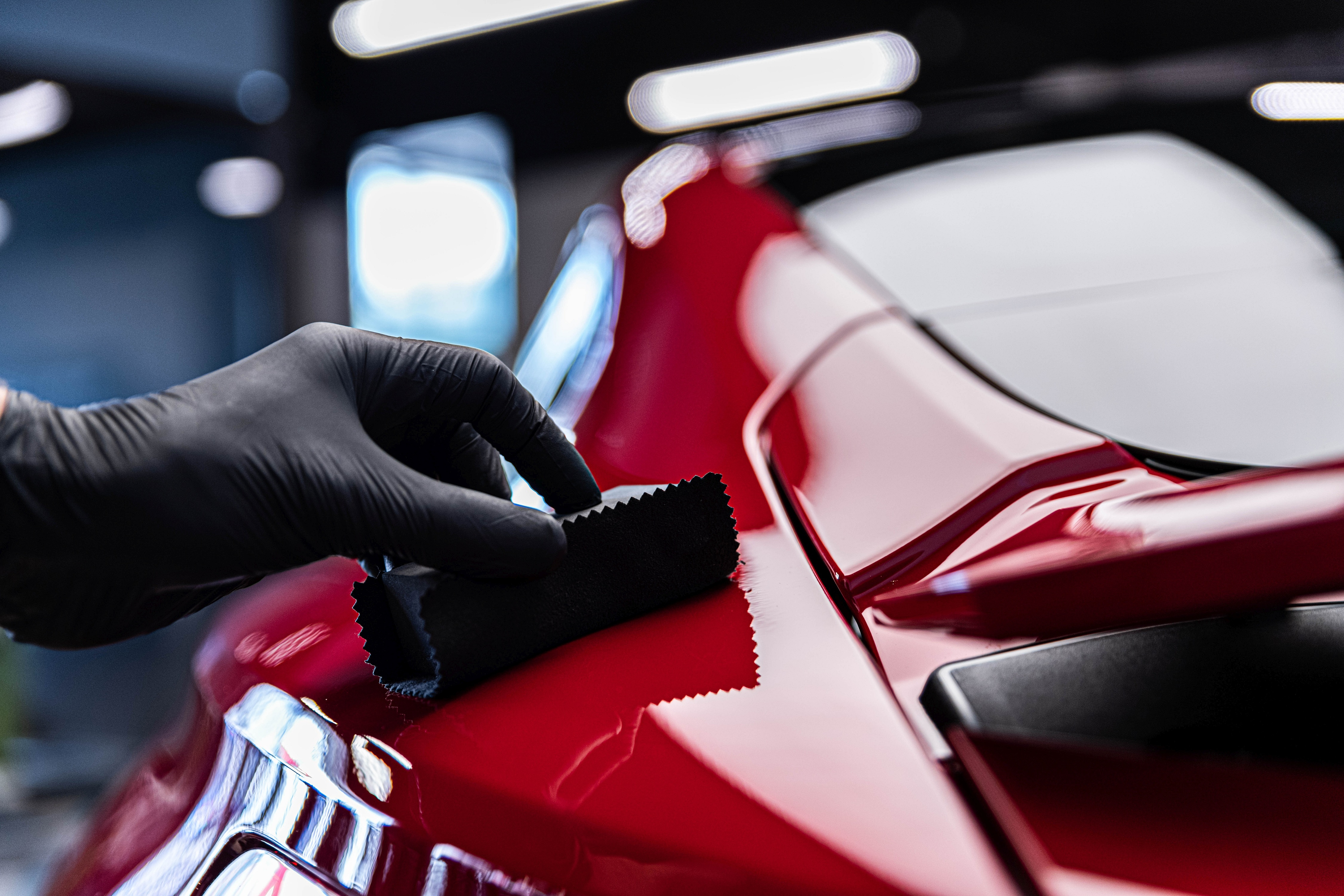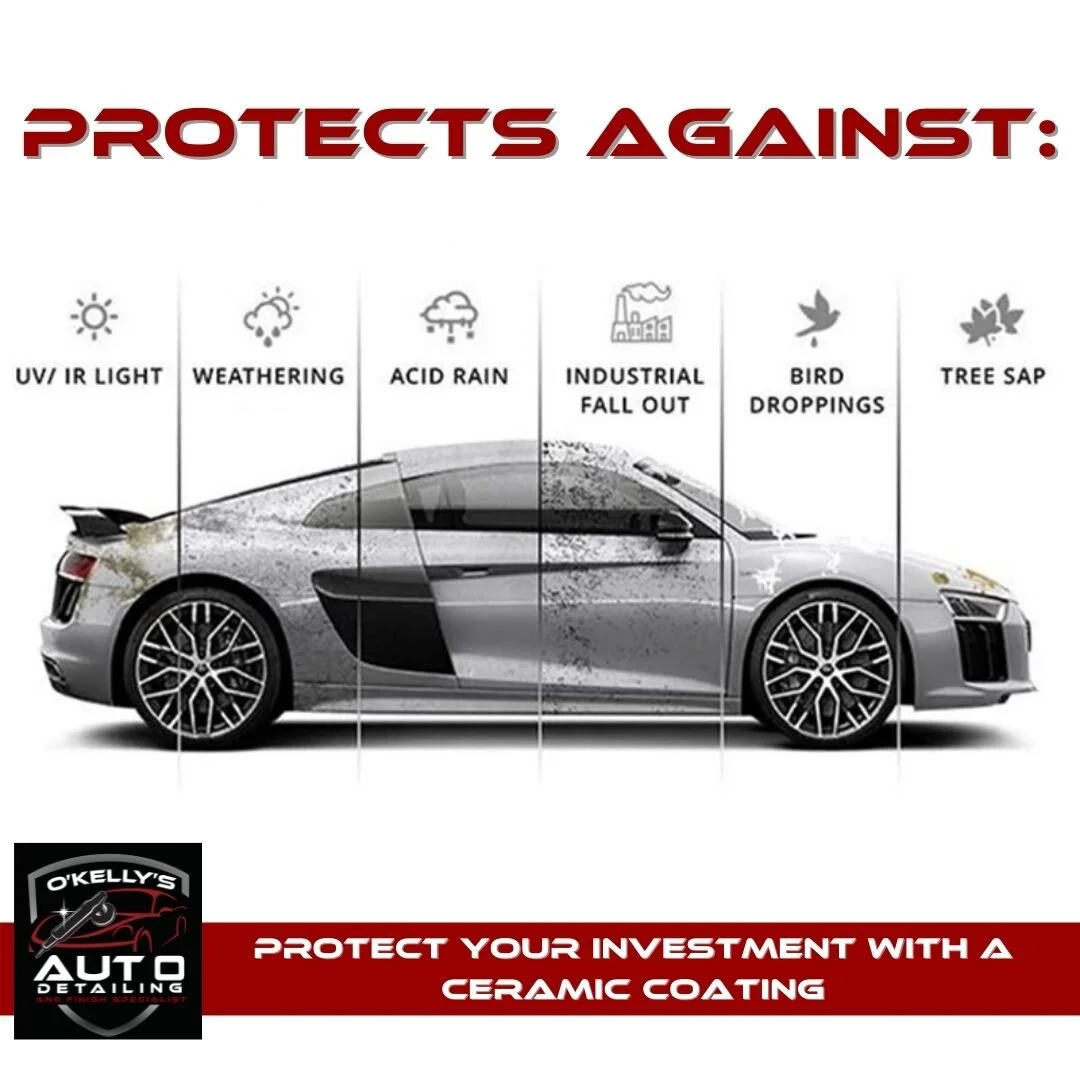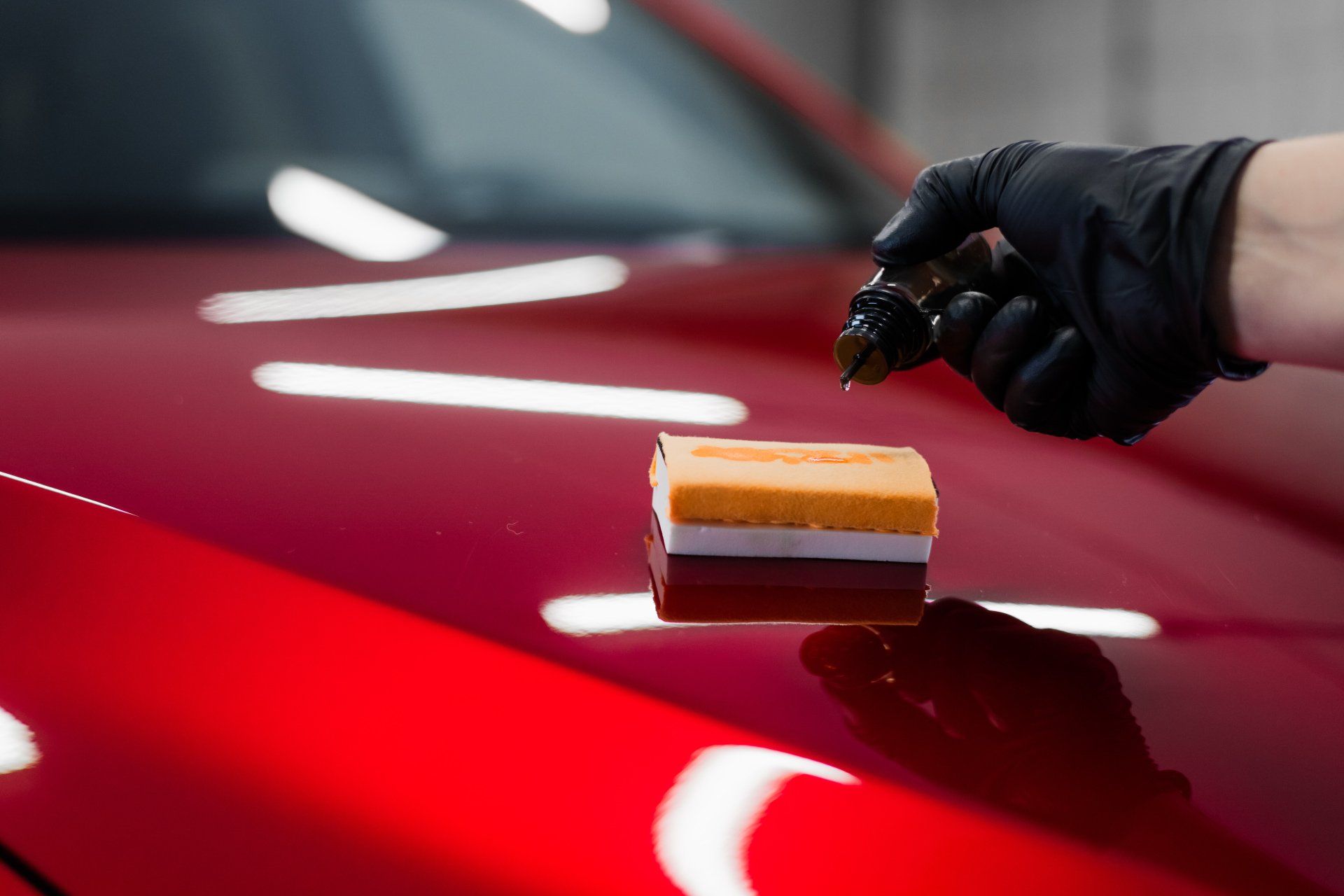How Final Touch Auto Works Ceramic Coatings Deliver Next-Level Vehicle Protection
How Final Touch Auto Works Ceramic Coatings Deliver Next-Level Vehicle Protection
Blog Article
The Ultimate Overview to Ceramic Coatings: Enhancing Your Vehicle's Complete and Durability
Ceramic layers might be the option you have actually been searching for if you're looking to boost your car's appearance and security. These sophisticated layers bond with your vehicle's paint, creating a resilient barrier against environmental damage. Just how do they pile up versus typical wax? Understanding the advantages and application procedure can make a significant distinction in your car care regimen. Allow's discover what makes ceramic layers a rewarding financial investment for your lorry.
What Are Ceramic Coatings?
Ceramic layers are innovative safety layers that boost your auto's outside. They're made from a fluid polymer that chemically bonds with your automobile's paint, developing a long lasting guard. Unlike conventional wax or sealers, which wear away over time, ceramic coatings give resilient security against ecological impurities like UV rays, dust, and chemicals.When you apply a ceramic covering, you're purchasing an obstacle that pushes back water, making it much easier to clean your vehicle and keeping it looking more recent for longer. This innovation helps maintain the stability of your paint, reducing the threat of scrapes and oxidation.Ceramic finishings come in numerous formulas, each designed to satisfy different demands and choices. You can choose a do it yourself set or go with specialist application, depending upon your comfort degree and budget plan. Overall, ceramic coatings stand for an innovative solution for keeping your car's visual charm and longevity.
Advantages of Ceramic Coatings
When you invest in a ceramic coating, you disclose a variety of advantages that go beyond plain visual appeals. To begin with, it provides phenomenal security versus environmental impurities like dust, bird droppings, and UV rays, keeping your auto's paint looking brand-new longer. You'll notice that upkeep becomes less complicated, as the hydrophobic buildings trigger water and crud to move off effortlessly. This implies much less time invested washing and outlining your vehicle.Additionally, ceramic coverings can boost the glossiness of your automobile's finish, providing it that showroom luster. They additionally offer resistance to scratches and swirl marks, which aids maintain your automobile's resale value. With a ceramic covering, you're not simply securing your financial investment; you're also enhancing its total look and durability. Inevitably, this innovative modern technology assurances your car stands apart while taking pleasure in lasting benefits that conventional waxes just can't match.
The Application Process: How to Apply Ceramic Coatings
Applying a ceramic coating involves several key actions to ensure ideal results. Completely wash your automobile to eliminate any type of dirt, grime, or contaminants. This assures the surface is all set and tidy for the layer. Next off, sanitize the paint utilizing a clay bar to get rid of ingrained bits. Later, check the paint for blemishes and brighten it to accomplish a smooth surface.Once your cars and truck's surface area is prepped, use the ceramic finishing in little sections. Make use of an applicator pad to spread out the finish uniformly, following the supplier's directions. Allow the layer to treat for the recommended time, typically in between one to two hours, relying on the product.Finally, prevent washing your car for a minimum of a week to allow the coating bond appropriately. Complying with these steps will certainly help you attain a resilient, high-gloss coating that safeguards your car for several years to find.

Contrasting Ceramic Coatings to Traditional Wax
After guaranteeing your vehicle's surface area is perfectly prepped with a ceramic finish, it's time to consider how this contemporary remedy compares to standard wax. Ceramic coatings supply a durable layer of defense that lasts for years, while wax normally supplies just a couple of weeks of sparkle. You'll see that ceramic finishings bond with your paint, producing a hydrophobic surface area that fends off water and dust, making upkeep easier.In comparison, conventional wax sits on top of the paint and calls for frequent reapplication. With ceramic finishings, you obtain superior scratch resistance and UV security, assisting to stop fading and oxidation. While the initial investment for a ceramic finishing is greater, the long-lasting advantages usually outweigh the costs. So, if you're searching for longevity and boosted gloss, ceramic coatings are a smart choice over traditional wax.
Upkeep Tips for Your Ceramic Coated Vehicle
To keep your ceramic-coated car looking beautiful, routine maintenance is necessary. Begin with a gentle laundry utilizing a pH-balanced shampoo; prevent severe detergents that can degrade the coating. Make use of a microfiber clean glove to avoid scratches and always rinse extensively to get rid of any kind of soap residue.After cleaning, completely dry your car with a soft microfiber towel to avoid water places. Consider applying a ceramic maintenance spray every few months to enhance the coating's hydrophobic properties and include an additional layer of protection.It's likewise smart to prevent automated auto cleans with rough brushes, as they can harm site link the finish. Instead, go with hand cleans or touchless clean choices. Additionally, on a regular basis check your car for contaminants like tree sap or bird droppings and resolve them immediately to avoid etching. Following these ideas will help preserve the sparkle and longevity of your ceramic-coated car for many years to find.
Usual Myths Concerning Ceramic Coatings
Despite the excellent benefits of ceramic finishes, several myths can develop confusion for automobile proprietors. One common misconception is that ceramic finishes eliminate the requirement for upkeep. While they do offer enhanced security, normal washing and care are still necessary to keep that high-gloss finish.Another misconception is that these finishings are scratch-proof. While they give a strong layer of defense against small scrapes, they can not withstand extreme effects or unpleasant materials.Many additionally believe that ceramic coverings will make their cars and trucks unsusceptible to all contaminants. In fact, they repel dirt and water however won't protect against issues like bird droppings or tree sap from causing damage if left unattended.Lastly, some believe that applying ceramic coatings is a DIY task anybody can manage, however attaining a remarkable application frequently needs specialist proficiency to ensure peak results.
Selecting the Right Ceramic Finishing for Your Automobile
Exactly how do you choose the right ceramic coating for your car? Beginning by taking into consideration the level of protection you require. If your auto encounters extreme weather condition or frequent trip, select a premium layer that uses exceptional sturdiness and resistance to scratches, UV rays, and chemical stains.Next, assume regarding the application technique. Some coatings call for expert installation, while others are DIY-friendly. If you're experienced, a do it yourself product could conserve you money, but also for the finest results, a specialist can ensure correct application.Don' t forget to examine the long life of the covering. Some last a couple of years, while others can safeguard for a years or even more. Ultimately, read endorsements and reviews to evaluate customer fulfillment. By evaluating these variables, you'll find a ceramic finishing that not just boosts your car's look however likewise provides lasting protection.
Frequently Asked Questions
Just How Long Do Ceramic Coatings Last usually?
Ceramic finishings usually last anywhere from two to 5 years, relying on elements like application, maintenance, and environmental conditions. You'll desire to follow proper treatment routines to optimize their long life and effectiveness.
Can Ceramic Coatings Be Applied Over Paint Scratches?
You can't use ceramic coatings over paint scratches efficiently. It's finest to fix any scratches first, making sure a smooth surface area - Final Touch Auto Works Ceramic Coatings. By doing this, the layer bonds effectively and supplies suitable protection for your vehicle's surface
Are Ceramic Coatings Safe for All Cars And Truck Surface areas?
Ceramic finishings are generally safe for most cars and truck surfaces, consisting of paint, glass, and wheels. Nevertheless, it is here are the findings crucial to check specific click site item guidelines, as some coatings may not appropriate for sure products or coatings.

Will Ceramic Coatings Protect Against UV Damages?

Can I Do Touch-Ups on Ceramic Coated Surfaces?
You can do touch-ups on ceramic coated surfaces, yet it's vital to use suitable items. Confirm the location is clean and adhere to proper application strategies to maintain the layer's stability and efficiency. Unlike conventional wax or sealers, which wear off over time, ceramic finishes offer durable protection versus ecological contaminants like UV rays, dust, and chemicals.When you use a ceramic finishing, you're spending in a barrier that pushes back water, making it easier to cleanse your vehicle and keeping it looking more recent for longer (Final Touch Auto Works Ceramic Coatings). Later, examine the paint for flaws and brighten it to accomplish a smooth surface.Once your car's surface is prepped, use the ceramic coating in little areas. Permit the covering to heal for the recommended time, usually in between one to 2 hours, depending on the product.Finally, avoid washing your automobile for at the very least a week to allow the layer bond properly. Consider applying a ceramic maintenance spray every few months to improve the finish's hydrophobic residential or commercial properties and include an additional layer of protection.It's also sensible to prevent automated auto cleans with unpleasant brushes, as they can harm the layer. Ceramic coatings are generally safe for many vehicle surfaces, including paint, glass, and wheels
Report this page